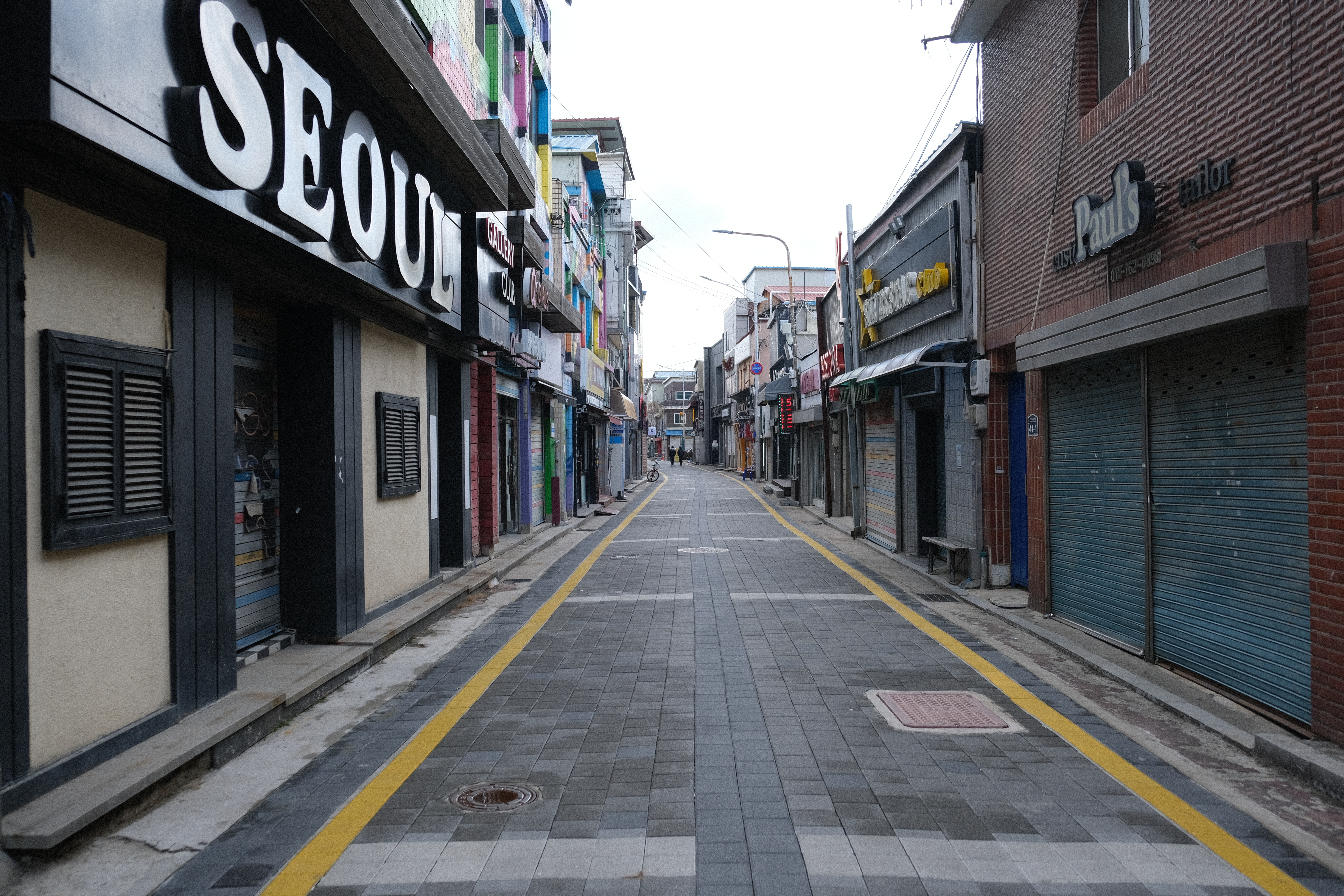CHE Onejoon, Strange Visitors (March 20, 2022)
For more than 70 years since Korea’s liberation, Dongducheon has provided 42% of the city's total area as a land for the US military. There were six USFK (United States Forces Korea) bases in the past - Camp Casey, Camp Hovey, Camp Castle, Camp Mobile, Camp Nimble, and Gimbols - and the entire Dongducheon City was known as “Camptown.” In particular, Bosan Club Street, located in front of Camp Casey, has long been the local center of commercial activity since 1952. While most US military bases have relocated and consolidated southwards to Pyeongtaek City, beginning in the year 2000, Camp Casey troop numbers have dropped by half. A trickle of Immigrants from Africa are filling in the empty spaces and currently, about 1,000 Africans live in the Bosan-dong area. 90% of them are Nigerian Igbos, and they are known to be proud of their traditions and culture among many African countries. Unfortunately, their community in Bosan-dong, Dongducheon, completely unknown to Koreans. However, the process of their culture taking root in Bosan-dong symbolizes the newly changing landscape of division.
Strange visitors tours the main places of Igbo Town located in Bosan-dong, which is now transforming into an African town, and Tuckgeori Village, where visitors can see the traces of the history of the US military base in Dongducheon. Strange Visitors explores how Igbo and local people, and broadly speaking, Africans, Koreans and Asians can live together.
|

|